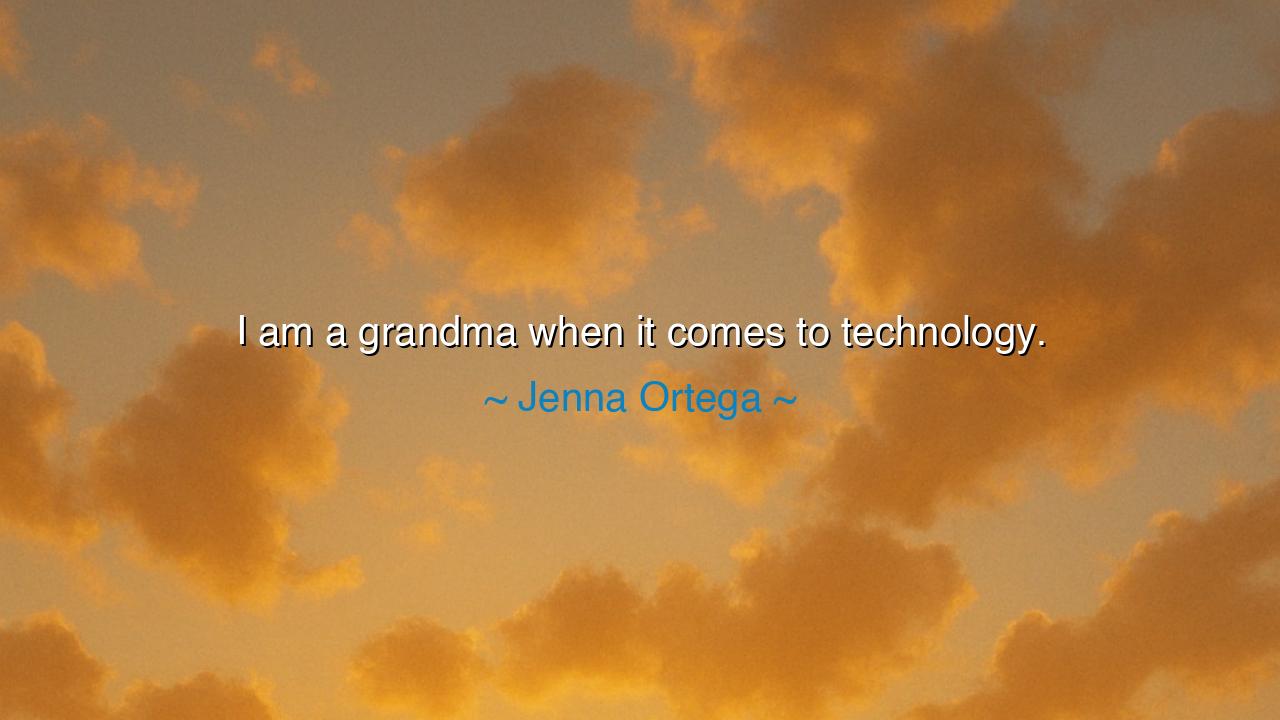
I am a grandma when it comes to technology.






Jenna Ortega, in her youth yet speaking with humility, once said: “I am a grandma when it comes to technology.” At first hearing, her words may seem light, a jest at her own expense. Yet beneath this playful confession lies a profound truth about the relationship between humanity and its ever-changing tools. She acknowledges that though she is young in years, she feels old in her grasp of the digital age, as if wisdom in some things may carry with it a distance from the restless speed of innovation.
The ancients would not have been surprised by this feeling. In every generation, the elders looked upon the inventions of the young with wonder and confusion. When writing was first invented, Plato himself worried that it would weaken memory and corrupt the oral tradition. When the printing press spread through Europe, scholars feared it would drown the world in frivolous words. Ortega’s words echo this same cycle: to feel like a grandma in the face of new technology is to feel the eternal weight of time, where each new tool seems strange until it becomes second nature to those who grow up with it.
Her saying also reminds us that mastery of technology is not the measure of wisdom. The grandmother, though perhaps clumsy with machines, carries in her heart the strength of patience, the knowledge of hardship, and the treasure of lived experience. So too does Ortega remind us that one can falter with devices yet excel in art, craft, or empathy. To be a “grandma” in one realm is not to be lesser—it is to confess human limitation with grace, and to honor other forms of strength.
History gives us vivid examples. Consider Winston Churchill, who, in the midst of World War II, famously resisted the telephone, preferring handwritten notes and face-to-face meetings. He, though burdened by the image of being behind the times, was still a leader of immense vision. Or think of Queen Victoria, who marveled with both awe and awkwardness at the invention of the telegraph. Their “grandmotherly” distance from technology did not strip them of greatness; instead, it revealed that tools change faster than souls, and each age must learn anew.
There is also humility in Ortega’s words. In an era where many boast of being fluent in every app, every platform, every digital trick, she admits her slowness. This humility is wisdom in disguise, for it reminds us that it is better to confess our limits than to pretend mastery where none exists. And in that confession, others may feel less alone. How many among us, though not old, feel bewildered by the pace of change? In her voice, they hear permission to laugh at their own struggles.
But there is a lesson here, too. To be a “grandma” in the world of technology is not to remain there forever. The grandmother herself learns slowly, through patience, repetition, and the guidance of the young. So too must we all approach new tools—not with shame, but with openness. Progress does not demand perfection, only willingness. To step into discomfort is to grow; to grow is to remain alive, no matter one’s age.
So, dear listener, let Jenna Ortega’s playful confession become a banner of wisdom. Do not fear being a beginner, nor shrink from admitting your struggles with the tools of the age. Embrace humility, laugh at your own clumsiness, and then rise with patience to learn. For the measure of your worth is not how swiftly you master technology, but how steadfastly you keep the heart of a learner. To be a grandma in technology is no shame—it is simply the beginning of wisdom in a world that never ceases to change.






AAdministratorAdministrator
Welcome, honored guests. Please leave a comment, we will respond soon